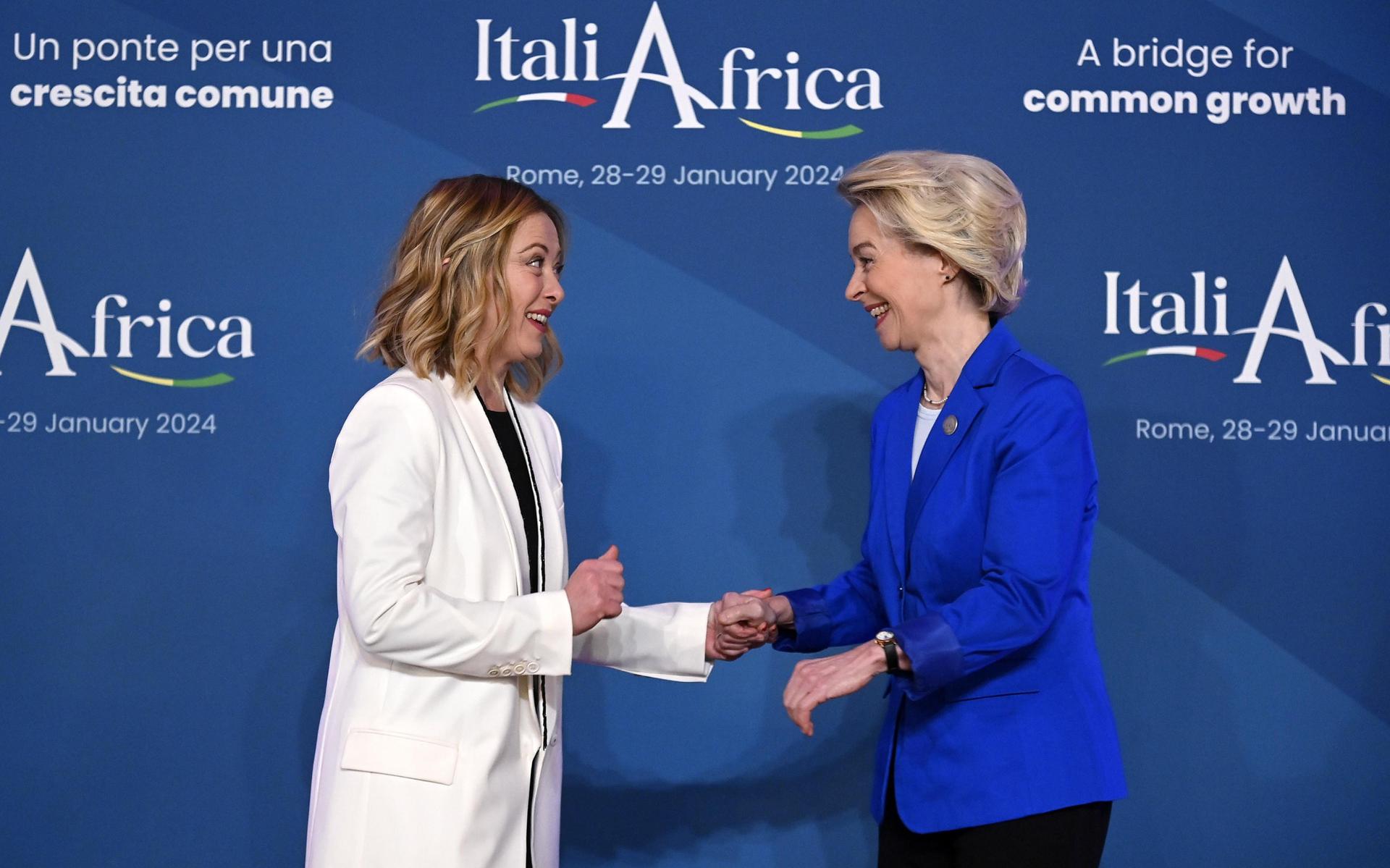
Nostalgia for the “Europe of the Homelands” continues to be palpable during these elections. The expected “turn to the right” is actually only visible in France.
Why did many European journalists maintain “the push to the right” until Sunday night? For months, the trend in composite polls before the European elections was that such a “move to the right” was not really possible. This evolution was visible in 2019. This time the result mainly exudes continuity.
The biggest news on Sunday night was the clearly different result in France. There, aversion to the course of the very pro-European president Emmanuel Macron defeated the European tendency. The electoral battle will continue there for some time, as Macron has called early parliamentary elections. But his radical right opponent, Marine Le Pen, already had many seats in the European Parliament. It is not yet clear what this means for the atmosphere in the European Council (heads of government) and the Franco-German Axis.
another french
France confirmed that it sees the European Union differently than many other countries. Macron had caused a trend break. He is working in a European France. In doing so, he goes back to the very beginning of European cooperation. At that time, that country’s patriarchs Robert Schuman and Jean Monnet were also busy laying the foundations for such supranational European cooperation.
But in France this was eclipsed when former General Charles de Gaulle entered politics and was elected president in 1958. He wanted a kind of French Europe and coined the concept of “Europe of the Fatherlands.” Since the crisis he forced in the mid-1960s over European agricultural policy and the “empty chair policy” practiced by France, it became clear that he had exaggerated.
However, this idea of the “Europe of Homelands” has never completely disappeared from European politics. The results of this tenth European Parliament election also made it clear here and there that this line of thinking still has political significance. This became visible on a micro level in the Netherlands because the SGP retained a seat in the European Parliament with the slogan “Stop Europe”, while the Christian Union did not. Anja Haga (Christian Union) did not succeed, perhaps because she tried to connect his party to the mainstream of European politics.
But an idiot on the right? No, unlike 2019, he was barely anywhere to be seen. Maybe a little in Germany, but mainly because there too a clear group of voters protests against the current “flashing lights coalition.” Not in Italy, because the current Prime Minister, Giorgia Meloni, made great achievements mainly from the even more radical right. Not in Poland, because Donald Tusk managed to adopt the new pro-European course thanks to the support of the Citizens Forum voters. Not in Hungary, where Victor Orbán suffered a great loss. In the end not in Belgium, because Vlaams Belang could not live up to its high expectations. And not in the Netherlands, because Geert Wilders saw that almost sixty percent of his electorate stayed home and, in fact, took all his profits from the far-right Forum for Democracy. In the northern Scandinavian member states there was even an opposite trend, moving away from nationalist parties and towards green and climate.
In progress
Now that European political parties and party families are taking stock, it is clear that the trend of the last six months will continue. Climate policy continues its course, although moderately. The strong farm lobby in and around parliament will be able to provide farmers with what they need. But everything that aims to strengthen the European internal market and the position of the European economy on a global scale will be able to continue developing. The reports of former Italian government leaders Enrico Letta (already published) and Mario Draghi (on the agenda for the end of June) can serve as a basis for this.
The most striking feature is the geopolitical component of the upcoming agenda. Ukraine has noted that direct support from Brussels remains intact. The European Union will now also be able to develop geopolitically in a more general sense. What is particularly exciting is how immigration policy will take shape. The idea contained in the Dutch framework agreement to continue fighting for an even stricter national component in addition to the new European migration pact already turns out to be an illusion.
Meanwhile, the Christian Democratic Party family remains by far the largest. Therefore, they will not be willing to abandon Ursula von der Leyen, their candidate for the presidency of the European Commission. But she has also extended a helping hand to right-wing Italian Prime Minister Meloni. That will be a difficult point during a possible hearing and subsequent vote in the new European Parliament. But as an alternative, only Mario Draghi’s name is whispered.
